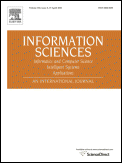

| |
| |
| KEEL-dataset - Experimental study |
On the 2-tuples based genetic tuning performance for fuzzy rule based classification systems in imbalanced data-sets
This webpage contains:
Abstract:
When performing a classification task, we may find some data-sets with a different class distribution among their patterns. This problem is known as classification with imbalanced data-sets and it appears in many real application areas. For this reason, it has recently become a relevant topic in the area of Machine Learning.
The aim of this work is to improve the behaviour of fuzzy rule based classification systems (FRBCSs) in the framework of imbalanced data-sets by means of a tuning step. Specifically, we adapt the 2-tuples based genetic tuning approach to classification problems showing the good synergy between this method and some FRBCSs.
Our empirical results show that the 2-tuples based genetic tuning increases the performance of FRBCSs in all types of imbalanced data. Furthermore, when the initial Rule Base, built by a fuzzy rule learning methodology, obtains a good behaviour in terms of accuracy, we achieve a higher improvement in performance for the whole model when applying the
genetic 2-tuples post-processing step. This enhancement is also obtained in the case of cooperation with a preprocessing stage, proving the necessity of rebalancing the training set before the learning phase when dealing with imbalanced data.
Summary:
1. Introduction
2. Imbalanced data-sets in classification
3. Fuzzy rule based classification system learning methods
4. Genetic tuning of the fuzzy rule based classification systems
5. Experimental study
6. Concluding remarks and further work
Experimental study:
- Algorithms analyzed: Chi et al, FH-GBML, C4.5, Ripper
- Data sets used: ZIP file

- Imbalanced: [5fcv] glass1, ecoli0vs1, wisconsin, pima, iris0, glass0, yeast1, vehicle1, vehicle2, vehicle3, haberman, glass0123vs456, vehicle0, ecoli1, new-thyroid2, new-thyroid1, ecoli2, segment0, glass6, yeast3, ecoli3, page-blocks0, yeast2vs4, yeast05679vs4, vowel0, glass016vs2, glass2, ecoli4, yeast1vs7, shuttle0vs4, glass4, page-blocks13vs2, abalone9vs18, glass016vs5, shuttle2vs4, yeast1458vs7, glass5, yeast2vs8, yeast4, yeast1289vs7, yeast5, ecoli0137vs26, yeast6, abalone19.
- Imbalanced (SMOTE): [5fcv] glass1, ecoli0vs1, wisconsin, pima, iris0, glass0, yeast1, vehicle1, vehicle2, vehicle3, haberman, glass0123vs456, vehicle0, ecoli1, new-thyroid2, new-thyroid1, ecoli2, segment0, glass6, yeast3, ecoli3, page-blocks0, yeast2vs4, yeast05679vs4, vowel0, glass016vs2, glass2, ecoli4, yeast1vs7, shuttle0vs4, glass4, page-blocks13vs2, abalone9vs18, glass016vs5, shuttle2vs4, yeast1458vs7, glass5, yeast2vs8, yeast4, yeast1289vs7, yeast5, ecoli0137vs26, yeast6, abalone19.
- Results obtained: ZIP file

 XLS file
XLS file  CSV file - Global results [none]
CSV file - Global results [none] XLS file
XLS file  CSV file - Global results [smote]
CSV file - Global results [smote] XLS file
XLS file  CSV file - Chi et al (3 labels) [none]
CSV file - Chi et al (3 labels) [none] XLS file
XLS file  CSV file - Chi et al (3 labels) +GTS [none]
CSV file - Chi et al (3 labels) +GTS [none] XLS file
XLS file  CSV file - Chi et al (3 labels) + LTR [none]
CSV file - Chi et al (3 labels) + LTR [none] XLS file
XLS file  CSV file - Chi et al (5 labels) [none]
CSV file - Chi et al (5 labels) [none] XLS file
XLS file  CSV file - Chi et al (5 labels) +GTS [none]
CSV file - Chi et al (5 labels) +GTS [none] XLS file
XLS file  CSV file - Chi et al (3 labels) + LTR [none]
CSV file - Chi et al (3 labels) + LTR [none] XLS file
XLS file  CSV file - FH-GBML [none]
CSV file - FH-GBML [none] XLS file
XLS file  CSV file - FH-GBML +GTS [none]
CSV file - FH-GBML +GTS [none] XLS file
XLS file  CSV file - FH-GBML + LTR [none]
CSV file - FH-GBML + LTR [none] XLS file
XLS file  CSV file - Chi et al (3 labels) [smote]
CSV file - Chi et al (3 labels) [smote] XLS file
XLS file  CSV file - Chi et al (3 labels) + GTS [smote]
CSV file - Chi et al (3 labels) + GTS [smote] XLS file
XLS file  CSV file - Chi et al (3 labels) + LTR [smote]
CSV file - Chi et al (3 labels) + LTR [smote] XLS file
XLS file  CSV file - Chi et al (5 labels) [smote]
CSV file - Chi et al (5 labels) [smote] XLS file
XLS file  CSV file - Chi et al (5 labels) + GTS [smote]
CSV file - Chi et al (5 labels) + GTS [smote] XLS file
XLS file  CSV file - Chi et al (5 labels) + LTR [smote]
CSV file - Chi et al (5 labels) + LTR [smote] XLS file
XLS file  CSV file - FH-GBML [smote]
CSV file - FH-GBML [smote] XLS file
XLS file  CSV file - FH-GBML +GTS [smote]
CSV file - FH-GBML +GTS [smote] XLS file
XLS file  CSV file - FH-GBML + LTR [smote]
CSV file - FH-GBML + LTR [smote] XLS file
XLS file  CSV file - C4.5 [smote]
CSV file - C4.5 [smote] XLS file
XLS file  CSV file - Ripper [smote]
CSV file - Ripper [smote]
|
Copyright 2004-2018,
KEEL (Knowledge Extraction based on Evolutionary Learning)
About the Webmaster Team |












